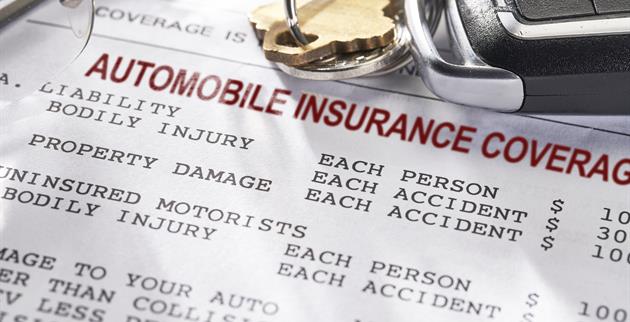

Remember, good auto insurance not only protects your vehicle, it protects your lifestyle.
Often, we purchase insurance policies because we are required by law to protect ourselves against potential risks, but how can you be confident in your coverage if you don’t know what you’re really getting? Preferred Mutual can help!
When you find an insurance policy rate no other insurance carrier can beat, there might be a reason. Aside from the basic auto policy requirements, such as bodily injury liability, personal injury protection, collision, and property damage liability, different states have different mandates for auto insurance, and if you don’t understand what your policy covers, you might be liable to cover those expenses not covered in the policy if there is an event involving your vehicle.
What is comprehensive insurance?
When it relates to your auto policy, comprehensive insurance (also known as “other than collision” in some states) covers damage to your car caused by events that are out of your control. Collision coverage provides reimbursement for damages to your vehicle resulting from an accident with another vehicle or object.
Comprehensive insurance and collision coverage are often mixed up or combined by many policyholders. Comprehensive is different, and an additional (or optional) coverage for things like theft, vandalism, glass and windshield damage, fire, accidents involving animals, weather/acts of nature, etc.
However, take this scenario as an example as to why that insurance policy you bought on the cheap might leave you high and dry:
Let’s say a severe thunderstorm is brewing in the clouds as your car is parked safely in your driveway. With one gust of wind, a tree limb falls on your car. Your car sustains over $5,000 in damage. You call your insurance company, you know – the one that gave you that stellar deal, and you explain to the claims representative what happened. As they review your policy, they indicate that you don’t have comprehensive insurance coverage.
You’re now on the hook for paying for the damage, and your insurance company won’t be involved in any of it.
That’s a stroke of bad luck, but if you have comprehensive insurance, all you’d pay is your deductible, and your insurance company handles the rest.
What is a deductible, then?
It’s one of the most common car insurance questions! An auto insurance deductible is what you pay “out of pocket” on a claim. Health insurance is completely different! You don’t have to meet your deductible for your auto policy; you only need to pay it when your vehicle has sustained damage and needs to be repaired!*
While that sounds like a perfect scenario for you:
- Higher deductible = Lower car insurance rate and higher out of pocket costs.
- Lower deductible = Higher car insurance rate and lower out of pocket costs.
Let’s take the scenario from earlier regarding that tree limb falling on your vehicle. Let’s assume that we have comprehensive insurance and a $1,000 deductible:
If the damage to your vehicle from that fallen tree limb amounts to only $800, and your deductible is $1,000, your insurer will pay nothing towards the damage, because they only cover damages above the amount of your deductible.
If you have a $1,000 deductible, though, and the damage was $1,750, your insurance company will cover the $750 left after you pay your deductible.
So, choose an amount you are comfortable with! It’s important to always consider the value of your vehicle, where your car is parked overnight, where you work or travel during the day, how often you’re in your vehicle, how far you travel, the traffic you drive through, the seasonal weather and its severity, etc.
*Keep in mind that scenarios regarding collision and liability claims will be handled on a case by case basis by your insurance carrier, determined by the cause of the damage.
Remember, good auto insurance not only protects your vehicle, it protects your lifestyle. That’s why Preferred Mutual is committed to providing the best protection, with a host of options that meet the needs of you and your family.
Call your insurance agent today and Live Assured.
This information is intended for educational purposes only and is not legal advice and/or an authoritative guide.